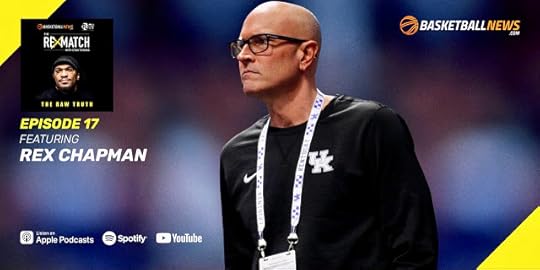Mark Anthony Neal's Blog, page 236
March 24, 2021
Coffee & Books: Miriame Kaba Discusses New Book 'We Do This 'Til We Free Us: Abolitionist Organizing and Transforming Justice'
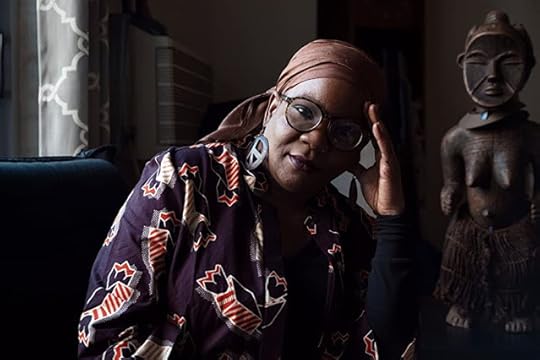
"On this episode of Coffee and Books, host Marc Lamont Hill talks with organizer, educator, and curator Miriame Kaba, author of the New York Times best-seller, We Do This 'Til We Free Us: Abolitionist Organizing and Transforming Justice. The two unpack abolition organizing, the origins of the penitentiary, the prison industrial complex and what justice reform truly means."
'Black Girl Songbook' – Chapter 5: Natalie Cole, More Than “This Will Be”
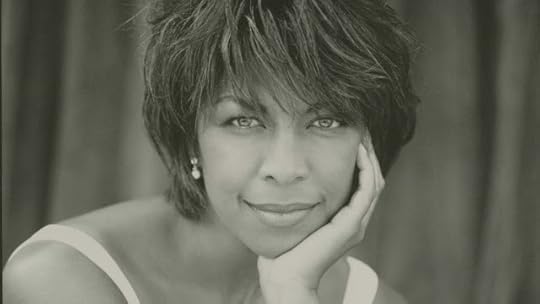
"In this episode of Black Girl Songbook host Danyel Smith details how Natalie Cole persevered through challenging obstacles to become a legend and how she fought through the shadows of heavy hitters like Aretha Franklin and her father, Nat King Cole."
March 23, 2021
Abbey Lincoln’s Landmark LP ‘Abbey Is Blue’ Set For Vinyl Reissue

Abbey Lincoln’s Landmark LP ‘Abbey Is Blue’ Set For Vinyl Reissue
The legendary jazz vocalist is accompanied by an all-star line-up of musicians, including Max Roach, Kenny Dorham, Stanley Turrentine, and Wynton Kelly.
Los Angeles, CA— This Women’s History Month, Craft Recordings is celebrating one of the most inspiring women in jazz, Abbey Lincoln, with a special reissue of her landmark LP, Abbey Is Blue. In stores May 28th and available for pre-order today, the 1959 album has been meticulously remastered from its original analog tapes by Kevin Gray at Cohearent Audio and pressed on 180-gram vinyl at RTI.
The moving title—which will also be released in stunning, hi-res digital audio—features an all-star line-up of musicians, including Max Roach, Kenny Dorham, Stanley Turrentine, Philly Joe Jones, Wynton Kelly, and Sam Jones.
Abbey Lincoln (1930–2010) was more than just one of the great jazz vocalists. She was also a passionate activist in the civil rights movement, an accomplished songwriter, a talented actress, and an inspiring teacher. Born Anna Marie Wooldridge, Lincoln honed her skills as a club singer, performing in Los Angeles under a variety of stage names. Influenced by the likes of Billie Holiday and Louis Armstrong, Lincoln possessed a distinctive and deeply emotive voice—one that quickly caught the attention of industry insiders. By the mid-1950s, she had landed a recording contract with the renowned New York jazz label, Riverside Records.
Lincoln’s three albums for Riverside, recorded between 1957–1959, found the artist pushing her creative boundaries and working alongside such innovative contemporaries as Sonny Rollins, Philly Joe Jones, Benny Golson, and her future husband, Max Roach. 1959’s Abbey Is Blue marked Lincoln’s fourth studio album and final recording with Riverside. A standout title in Lincoln’s prolific body of work, Abbey Is Blue took a stark turn from her earlier releases, which typically consisted of standards from the Great American Songbook. As the title suggests, Abbey Is Blue finds the singer solemn and reflective, singing about the harsh realities of the world. Her vocal talents, meanwhile, are on display, as Lincoln soulfully embodies the lyrical content of her songs.
According to Riverside co-founder Orrin Keepnews, who co-produced the album, each track on Abbey Is Blue was carefully and consciously selected by Lincoln. They included the Kurt Weill/Langston Hughes-penned “Lonely House,” from the 1946 opera Street Scene, the cutting theme to the 1928 silent film Laugh, Clown, Laugh, and Mongo Santamaría’s jazz standard, “Afro Blue,” featuring lyrics by Oscar Brown.
Lincoln also performed one of her original compositions, “Let Up.” Decades later, in an interview with the National Endowment for the Arts (which awarded Lincoln with the Jazz Masters Award in 2003), the artist spoke about the song, recalling, “My life was really becoming oppressive. I was trying to be seen as a serious performer. And there were many people making snide, ugly remarks about [me].” Lincoln had had enough, and “Let Up” was a bold message to her critics.
Lincoln was also feeling oppressed by the discrimination that she and her fellow Black Americans faced daily. As the civil rights movement of the ’60s was brewing, Abbey Is Blue served as a precursor to her work as an activist. The following year, she would collaborate on the incendiary We Insist! Max Roach's Freedom Now Suite. While Abbey Is Blue found the singer lamenting injustice, however, We Insist! faced it boldly and unflinchingly.
In his original liner notes for Abbey Is Blue, Keepnews mused, “…the truest image of sorrow, the bitterest taste of loneliness, the deepest shades of blue—such things are apt to be most haunting and most moving when a woman gives them voice. In this album, Abbey Lincoln proves once again that this is true.”
He added, “It is certainly the best singing by far that Abbey has done on record, and I think now—as I did much of the time while it was being recorded—that it stands up as among the most effective and moving albums that any singer has created in a long time.”
@font-face {font-family:Helvetica; panose-1:0 0 0 0 0 0 0 0 0 0; mso-font-charset:0; mso-generic-font-family:auto; mso-font-pitch:variable; mso-font-signature:-536870145 1342208091 0 0 415 0;}@font-face {font-family:"Cambria Math"; panose-1:2 4 5 3 5 4 6 3 2 4; mso-font-charset:0; mso-generic-font-family:roman; mso-font-pitch:variable; mso-font-signature:3 0 0 0 1 0;}@font-face {font-family:Calibri; panose-1:2 15 5 2 2 2 4 3 2 4; mso-font-charset:0; mso-generic-font-family:swiss; mso-font-pitch:variable; mso-font-signature:-536859905 -1073732485 9 0 511 0;}p.MsoNormal, li.MsoNormal, div.MsoNormal {mso-style-unhide:no; mso-style-qformat:yes; mso-style-parent:""; margin:0in; mso-pagination:widow-orphan; font-size:12.0pt; font-family:"Calibri",sans-serif; mso-ascii-font-family:Calibri; mso-ascii-theme-font:minor-latin; mso-fareast-font-family:Calibri; mso-fareast-theme-font:minor-latin; mso-hansi-font-family:Calibri; mso-hansi-theme-font:minor-latin; mso-bidi-font-family:"Times New Roman"; mso-bidi-theme-font:minor-bidi;}.MsoChpDefault {mso-style-type:export-only; mso-default-props:yes; font-family:"Calibri",sans-serif; mso-ascii-font-family:Calibri; mso-ascii-theme-font:minor-latin; mso-fareast-font-family:Calibri; mso-fareast-theme-font:minor-latin; mso-hansi-font-family:Calibri; mso-hansi-theme-font:minor-latin; mso-bidi-font-family:"Times New Roman"; mso-bidi-theme-font:minor-bidi;}div.WordSection1 {page:WordSection1;}'The Marathon Don't Stop: The Life & Times of Nipsey Hussle'
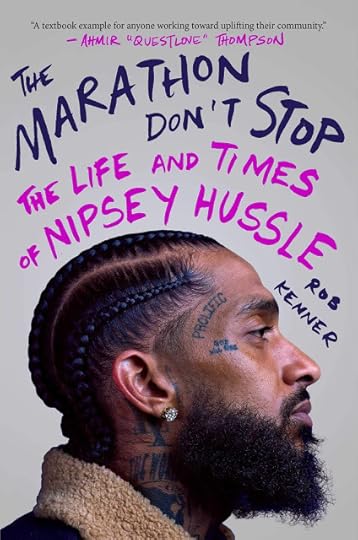
"Just as he was gaining critical and commercial success as a rap artist, Ermias Asghedom, widely known as Nipsey Hussle, was murdered in broad daylight in a parking lot on March 31, 2019. A new book by a founding editor of Vibe, Rob Kenner, titled, The Marathon Don't Stop: The Life and Times of Nipsey Hussle, chronicles the rapper’s life and his rise as a national hip hop star and community activist. Rob Kenner joins All Of It to discuss Asghedom’s life, work, and legacy."
From Statehood to Self-Determination: The Political Future of Puerto Rico

"Representative Nydia Velázquez, along with Representative Alexandria Ocasio-Cortez, and Senator Bob Menendez, officially announced the Puerto Rico Self-Determination Act of 2021. A competing bill about Puerto Rico’s political status was introduced by Representatives Darren Soto and Jenniffer Gonzalez, Puerto Rico's nonvoting member of Congress. Their alternative, the Puerto Rico Statehood Admission Act, would make the island a state. The debate shaping up in Congress reflects a longstanding divide among Puerto Ricans about the island’s status as a U.S. territory and the path forward against the backdrop of an economic crisis and a pandemic." -- The Takeaway
Invisible Blackness – The Writer's Room: Commercial Conformity for the Hip Hop Culture, an Interview with Cheo Coker
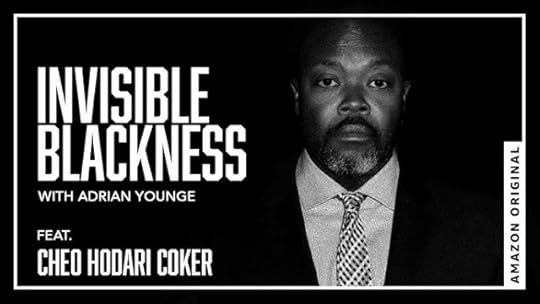
"As a revered writer and Hip Hop journalist, Cheo Hodari Coker helped to set the tone of how this burgeoning culture would be consumed and analyzed by the world. Moreover, Coker made a career out of explaining Black culture to White people. In this episode on Invisible Blackness, Adrian Younge and Cheo discuss Black culture, and our responsibility to ensure the perseveration of our story."
March 22, 2021
Reimagining Blackness & Architecture: Black City: The Los Angeles Edition | Yolande Daniels
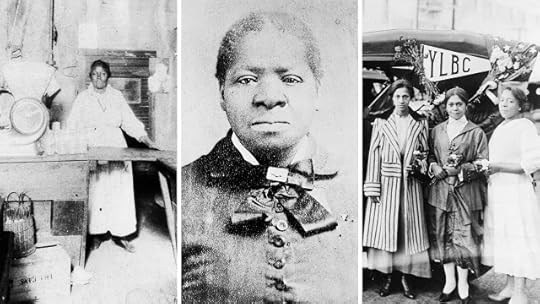
"What do we find when we revisit the past? Designer J. Yolande Daniels discusses her project “Black City: The Los Angeles Edition” and the stories she uncovered while researching Black inhabitants throughout the history of Los Angeles." -- Museum of Modern Art
The Rematch with Etan Thomas: Rex Chapman on His Top NBA Moments, Jawing w/ Michael Jordan, Racism in Kentucky & More
"Former NBA Star Rex Chapman joins The Rematch with host Etan Thomas to discuss his NBA career, adjusting to being a pro, dunking on Manute Bol, and the racism he experienced while playing at Kentucky."
March 21, 2021
FRONTLINE – Policing the Police: Newark Mayor Ras Baraka in Conversation with Jelani Cobb
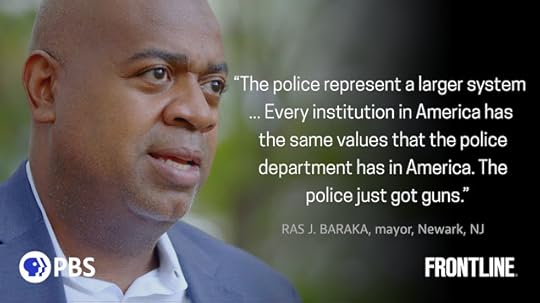
"Ras Baraka has served as the mayor of Newark, New Jersey, since 2014. He sat down with the historian, staff writer for The New Yorker and FRONTLINE PBS correspondent Jelani Cobb to discuss policing and race relations in Newark."
No Justice, No Peace: Rapsody on Art, Activism, and the Power of Music
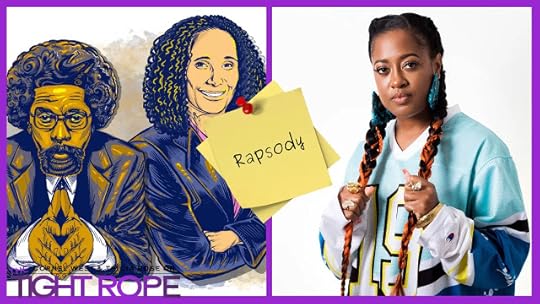
"The Tight Rope host Professors Tricia Rose and Cornel West invite Rapsody to discuss the legacy of the Black music tradition and how it continually reiterates itself within “new genres” creating a cultural archive. Additionally, Rapsody discusses her journey ‘making it’ in the business without compromising her vision for her artistry and the stories she wants to tell. As they discuss both the legacy and future of hip-hop, the Professors and Rapsody discuss the popular tropes in hip hop music and interrogate how gender stereotypes manifest both ‘the business’ and music itself. Finally, they speak to the political nature and origins of hip hop and exchange views on how it continues to fortify generations of freedom fighters."
Mark Anthony Neal's Blog
- Mark Anthony Neal's profile
- 30 followers


